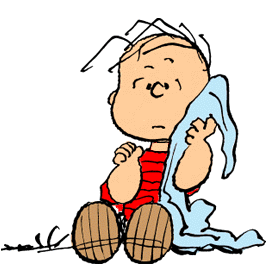An after-the-hype viewing of Academy Award winning "The Queen" has left me with a shitty cynical grin on my face this Labor Day Weekend. As I sat back in my pin-striped pajama pants and oversized t-shirt enjoying the freedom of another day off of work, I couldn't help but to be bewildered by many members of our specie's unfailing love for a dead former-princess (or, see: popular culture icon), and how such a love was rekindled on screen via the PR struggles of Britain's queen. Not that people's superfluous diversions and obsessions with larger-than-life personalities is at all surprising, after all, everyone wants to identify with someone important so as to affirm their own importance in this world. But seeing such a display of banality shortly after reading Edward O. Wilson's discourse on the future of our species and the very real dire situation that this precious life-giving world faces, "The Future of Life", I have to chuckle at the self-indulgence we allow ourselves as a species.
Now Wilson's book is nowhere as attacking as my opening paragraph. No, he would rather not alienate in his prose, but give us all a purpose to preserve the wonders that still exist on this planet. He expertly brings us into the world of a variety of species, with passion falling wisely (and barely) short of sentimentality, affirming the worth of everything on this planet and how we all benefit from the existence of all species economically, scientifically, aesthetically. He empathizes with all sides of the plight, from the conservationist to the economist, from the first-world entrepreneur to the third-world struggler. He finds a stake in it for everyone, and he does so without having to force any issues or forge any bridges that seem unnatural.
As a biologist and conservationist, Wilson does clearly have an agenda, but that agenda is apolitical, which is refreshing and productive. He does not mock any one type of person, but does aim to agitate the apathetic. As the book goes from background lessons on the biodiversity of Earth, to how we must pass through what he considers a "bottleneck" in order to preserve all species for the further benefit of human beings and everything else on this planet, to our dubious legacy as destroyer of ecosystems, to our grand opportunity to heal (the final chapter, number seven, entitled "The Solution"), Wilson shows how people from all walks of life can benefit from preserving biodiversity. He even manages to show the economist, the hardcore money-maker, how biodiversity will ensure success for them and their future. He pushes for a future of democracy, private enterprise, and science and technology, including conservation, creating a book that should work to mobilize people from all lifestyles.
The organization of "The Future of Life" is sensical, though with seven chapters in 189 pages, and Wilson's penchant for a passionate rant on an endangered species or our ruining of Hawaii's once-majestic biodiversity at any given time, you may find yourself at a moment feeling touched, and then exhausted at the next. There are no breaks to be found as Wilson leaves one topic for another, nor does Wilson want to be bothered with smooth transitioning, though he does repeat his key points throughout various chapters frequently enough so as to drive the main ideas home. So the reader does have to work a bit to synthesize the information, but when you do, the piece is more evocative than its sometimes-difficult analytical prose may lead you to believe. And that's probably because by the time you are done, you feel far more connected to the natural world than you did before this book was part of your life.
Then, that's what Wilson wants. In a world where we mourn the death of a single person of our species, I think Wilson wants us to look beyond our own noses into the importance of this entire world, to the extreme in which it is being degraded, and to the consequences this will pose to future generations of human beings and other species alike. He will give you, perhaps for the first time, the opportunity to ponder all the opportunities this natural world holds for us in many realms, from admiring its beauty, to mining it for scientific and economic gains. And then he holds out a hope that we can do something to save it. It's hard to tell how likely he thinks this is -- the reversal of destructive human activity -- but it's obvious he sees no point in playing the cynic when such an outlook would serve no good. So he holds onto the hope many good turns in conservation has already given him, and now sits back to watch the human response unfold.
"It is not so difficult to love nonhuman life, if gifted with knowledge about it."

No comments:
Post a Comment